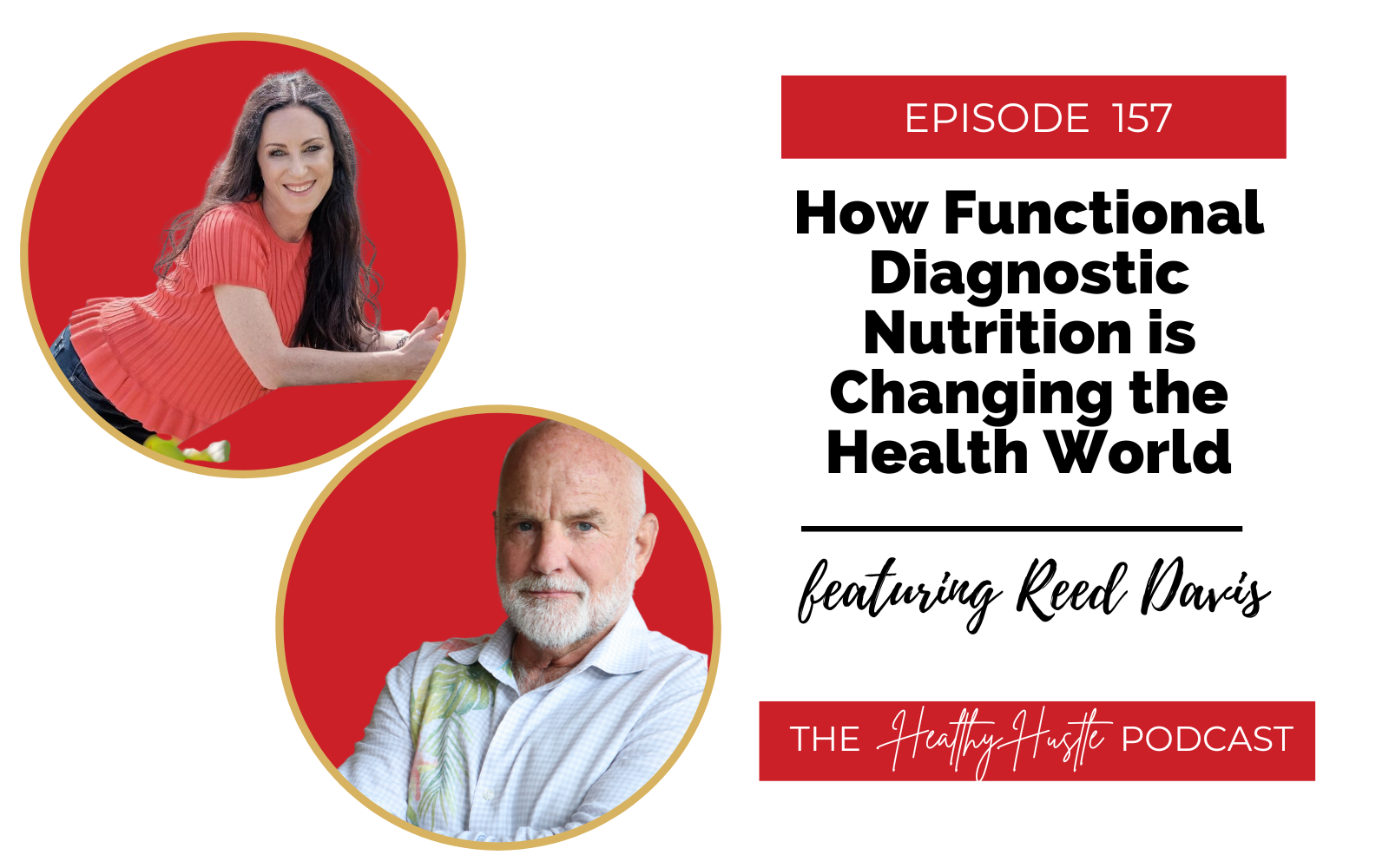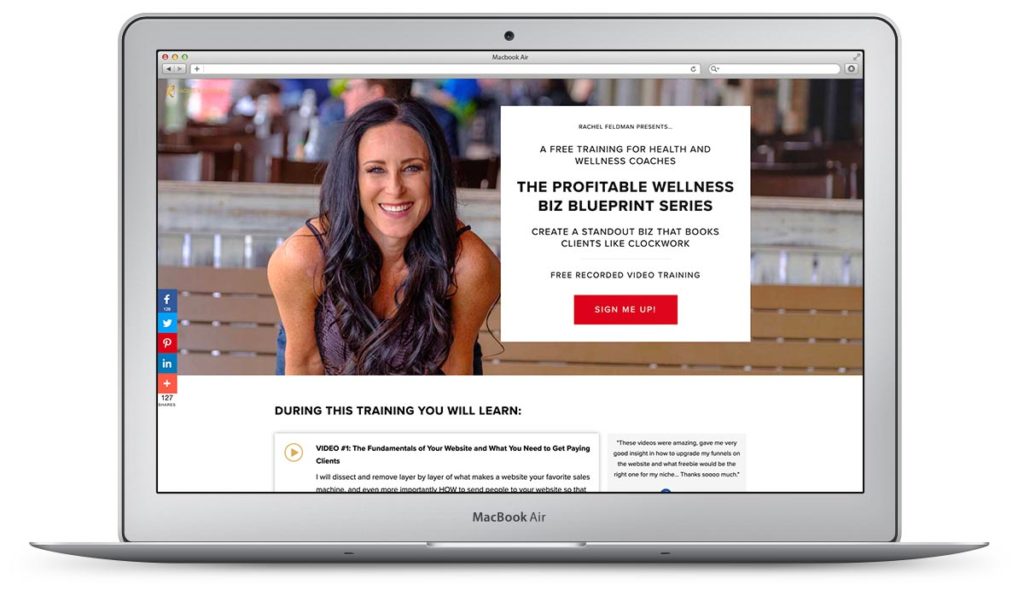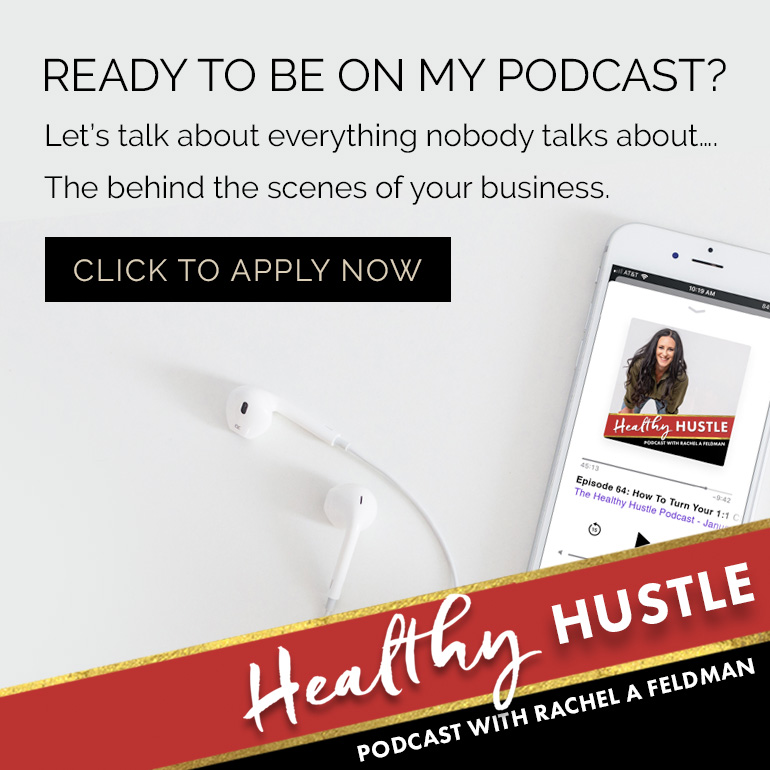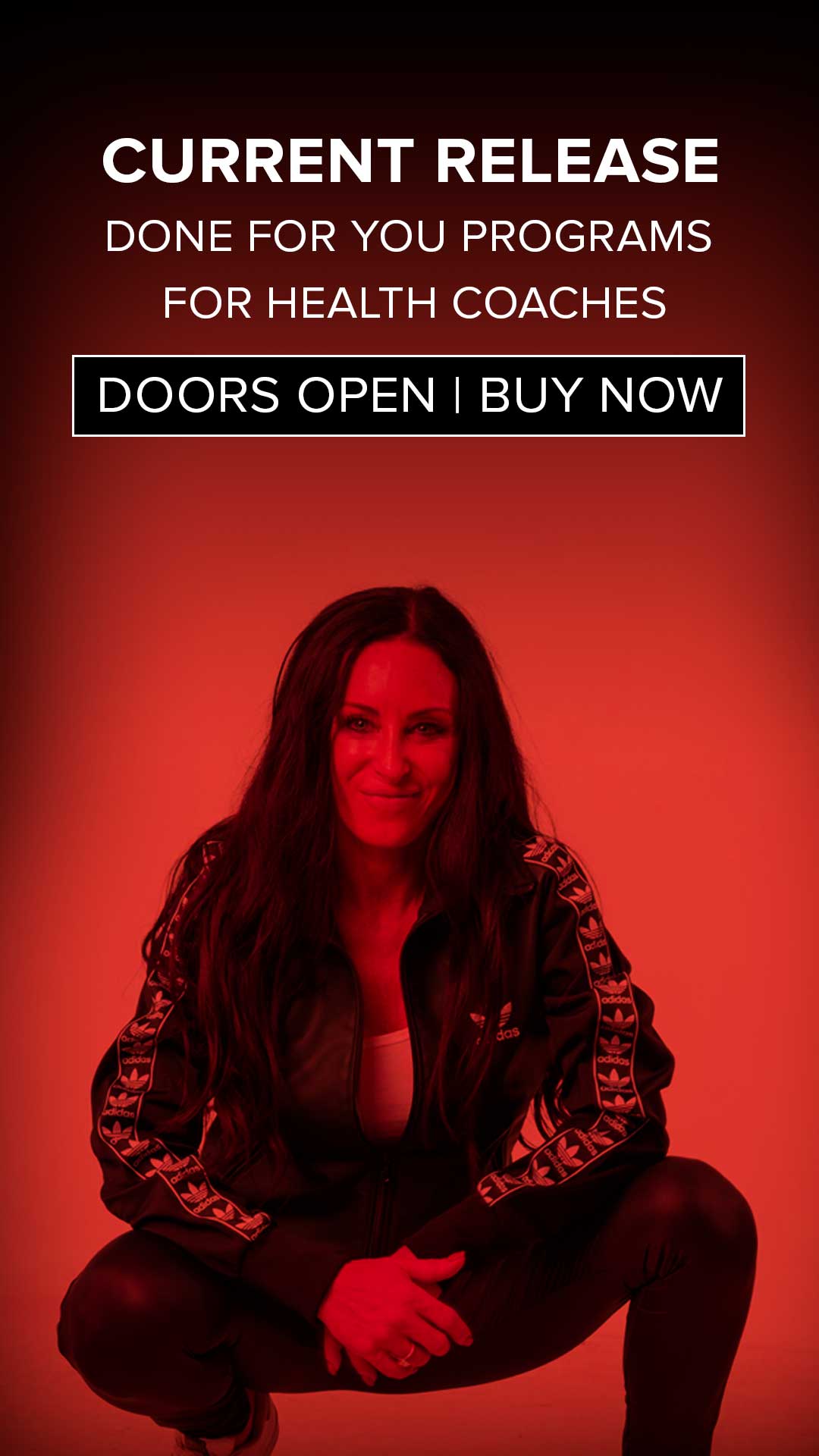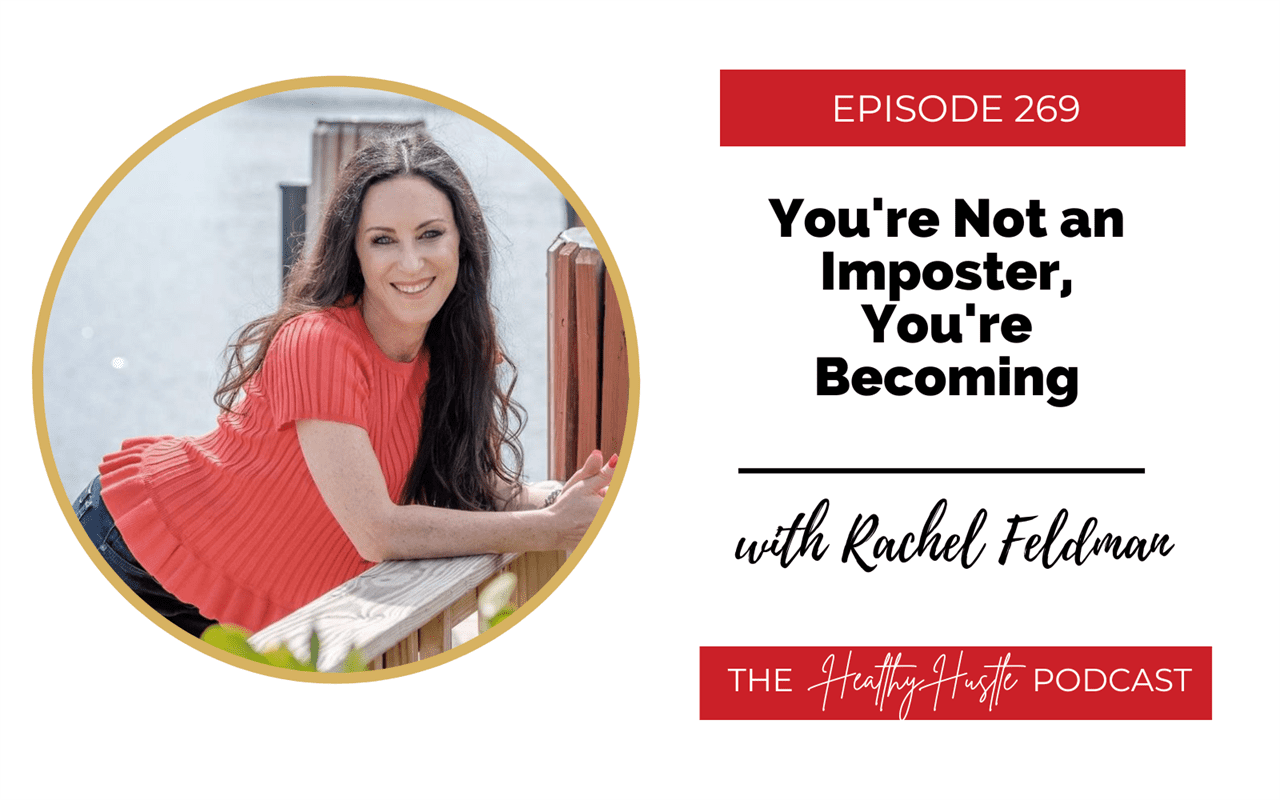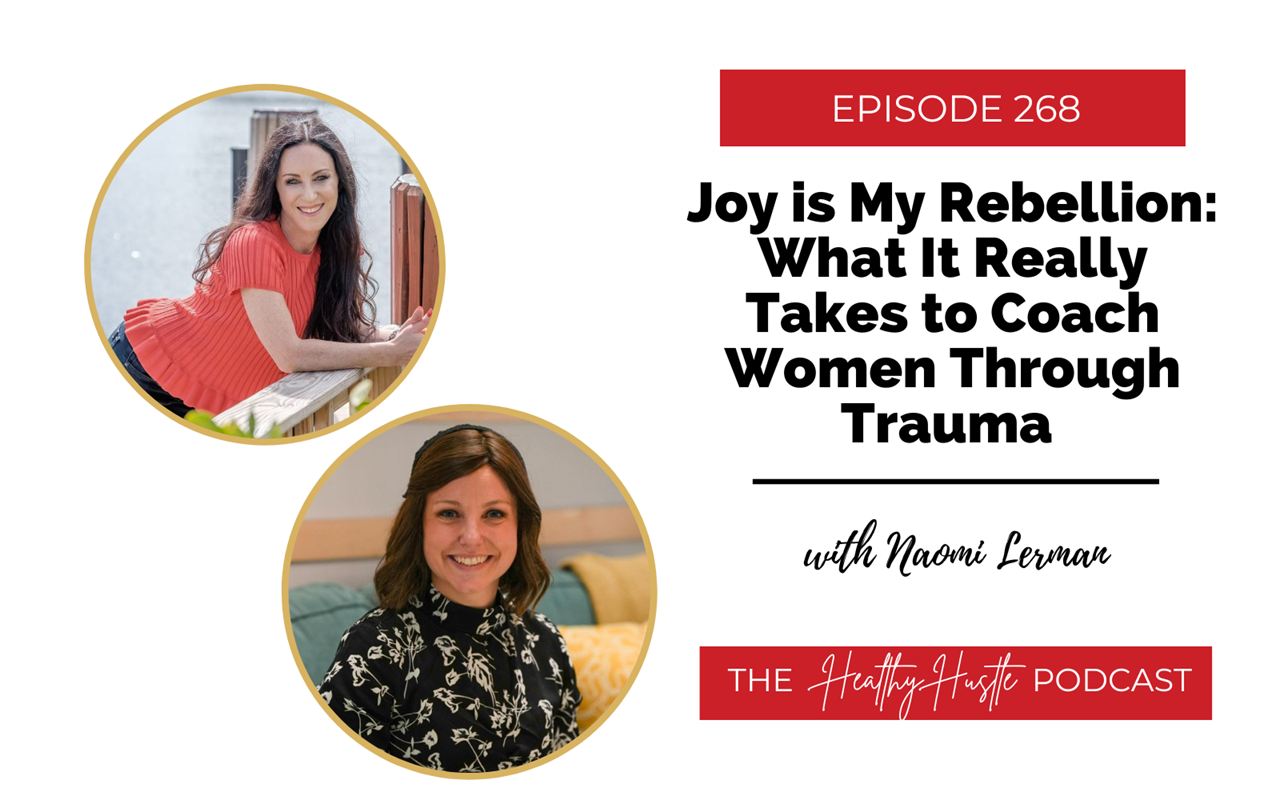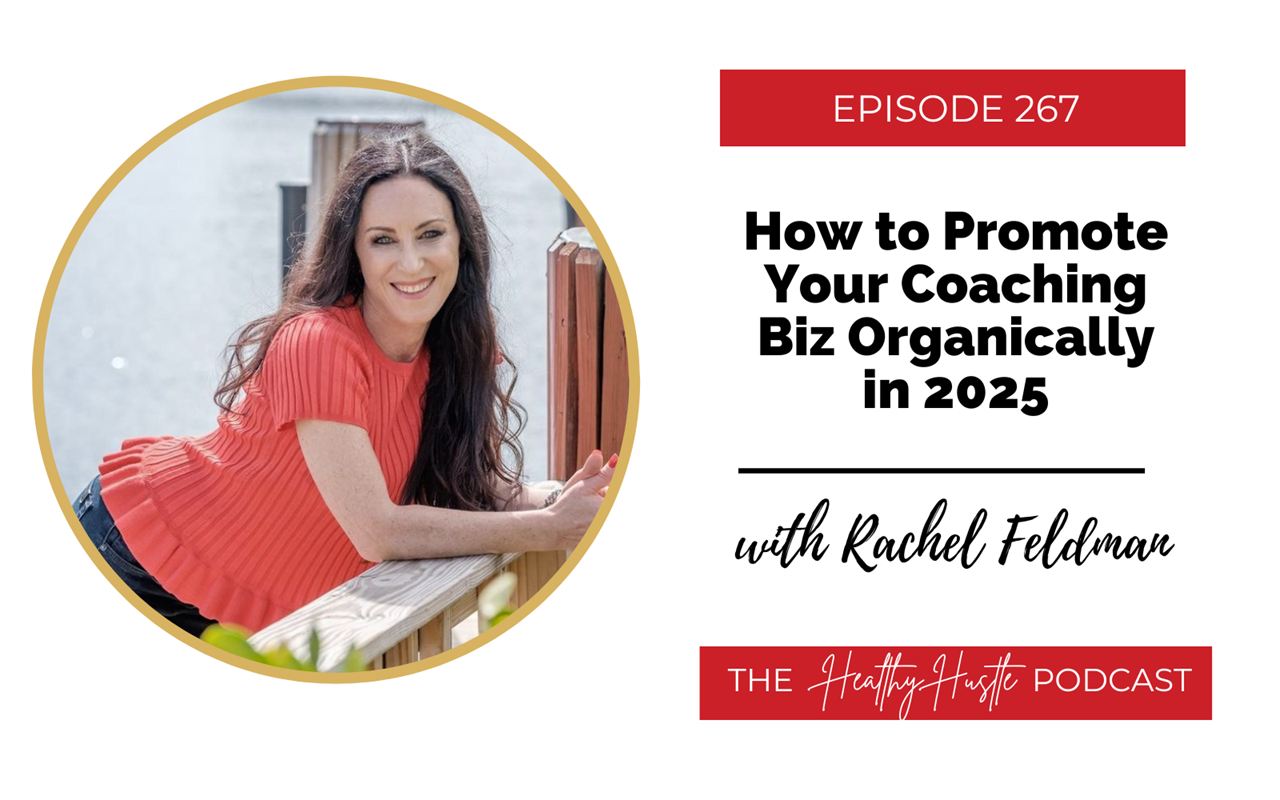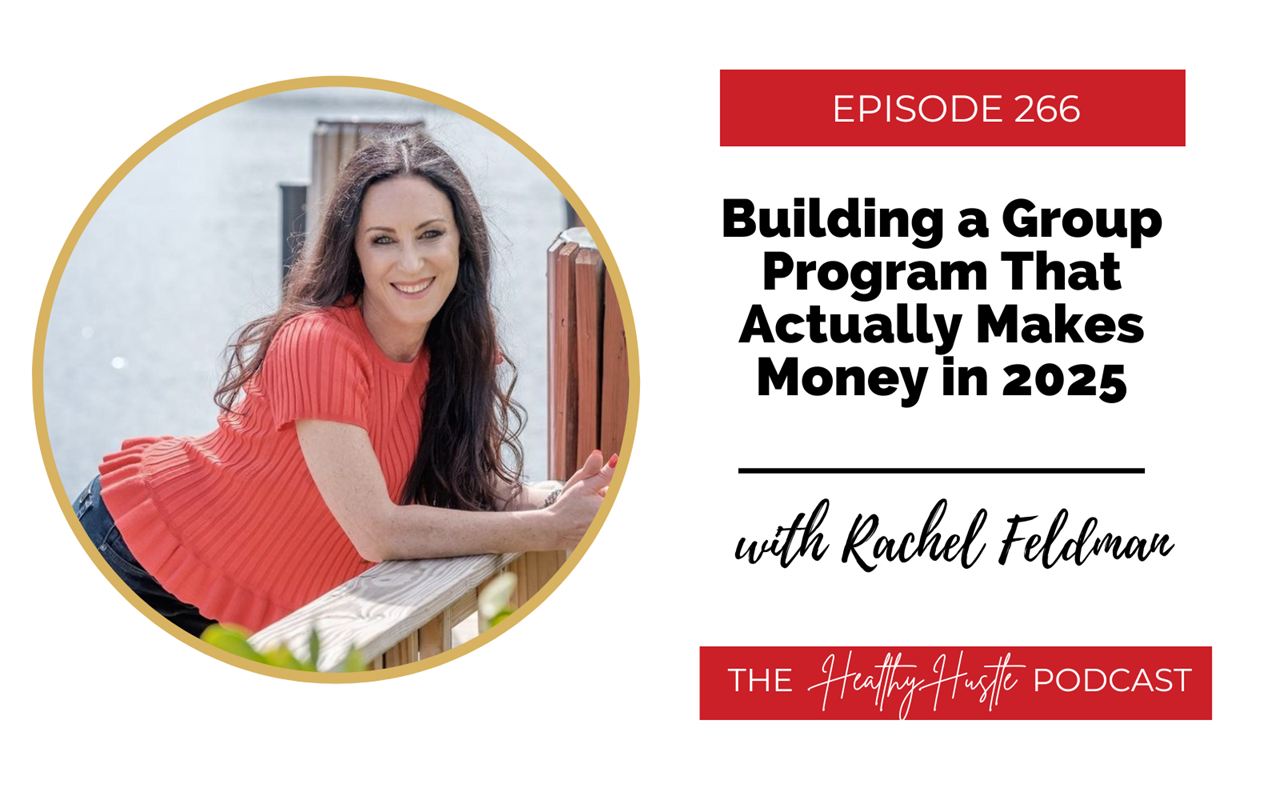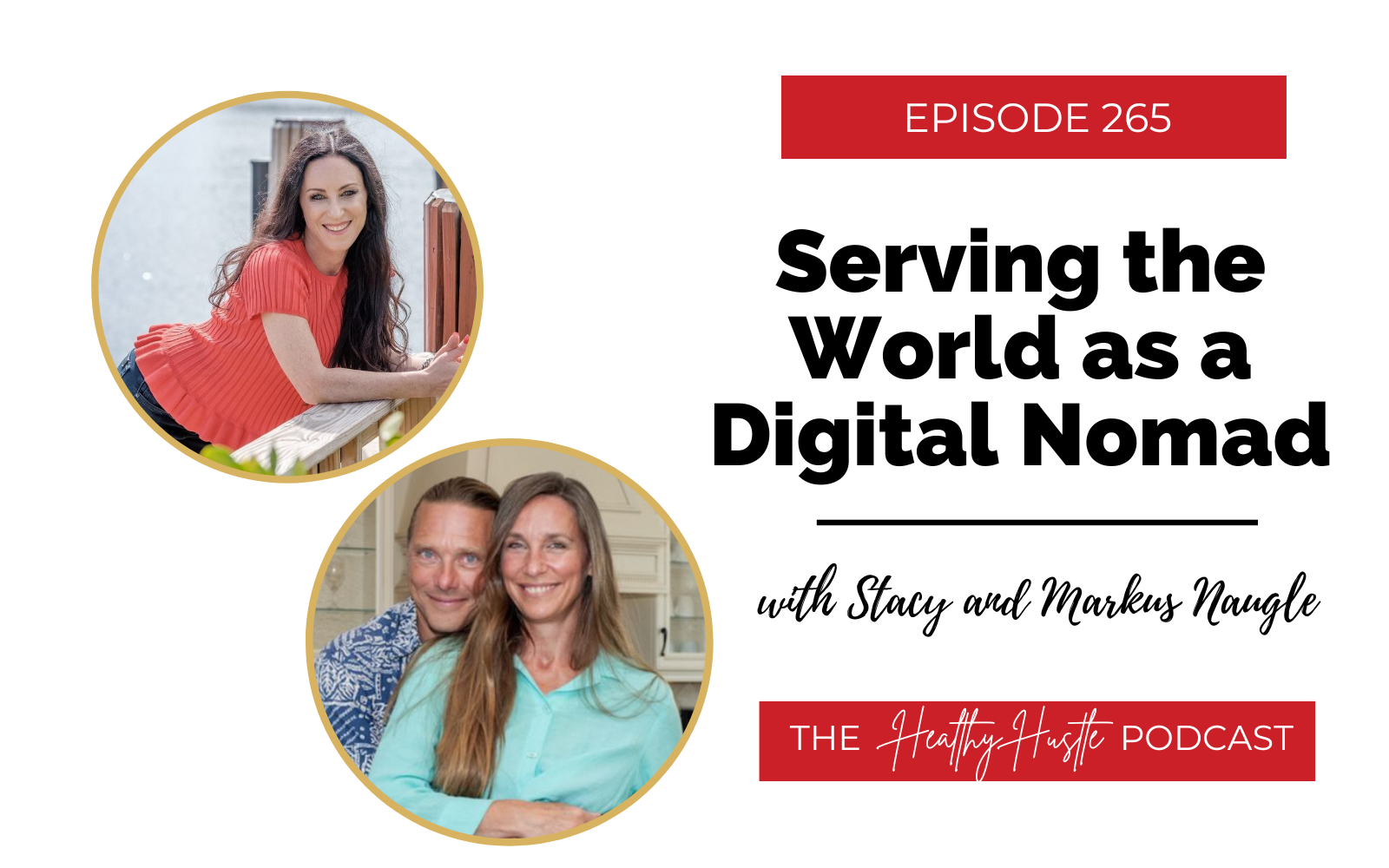So many people are dealing with poor health or chronic, degenerative, downward-spiraling conditions. We see it with our coaching clients, and a lot of us have seen it with our own health. Why is this? And why aren’t people getting the care and support they need from doctors?
Our guest today has been tackling these questions for decades and, in response, has created a training program that teaches health coaches how to help more people get well and stay well through education and empowerment.
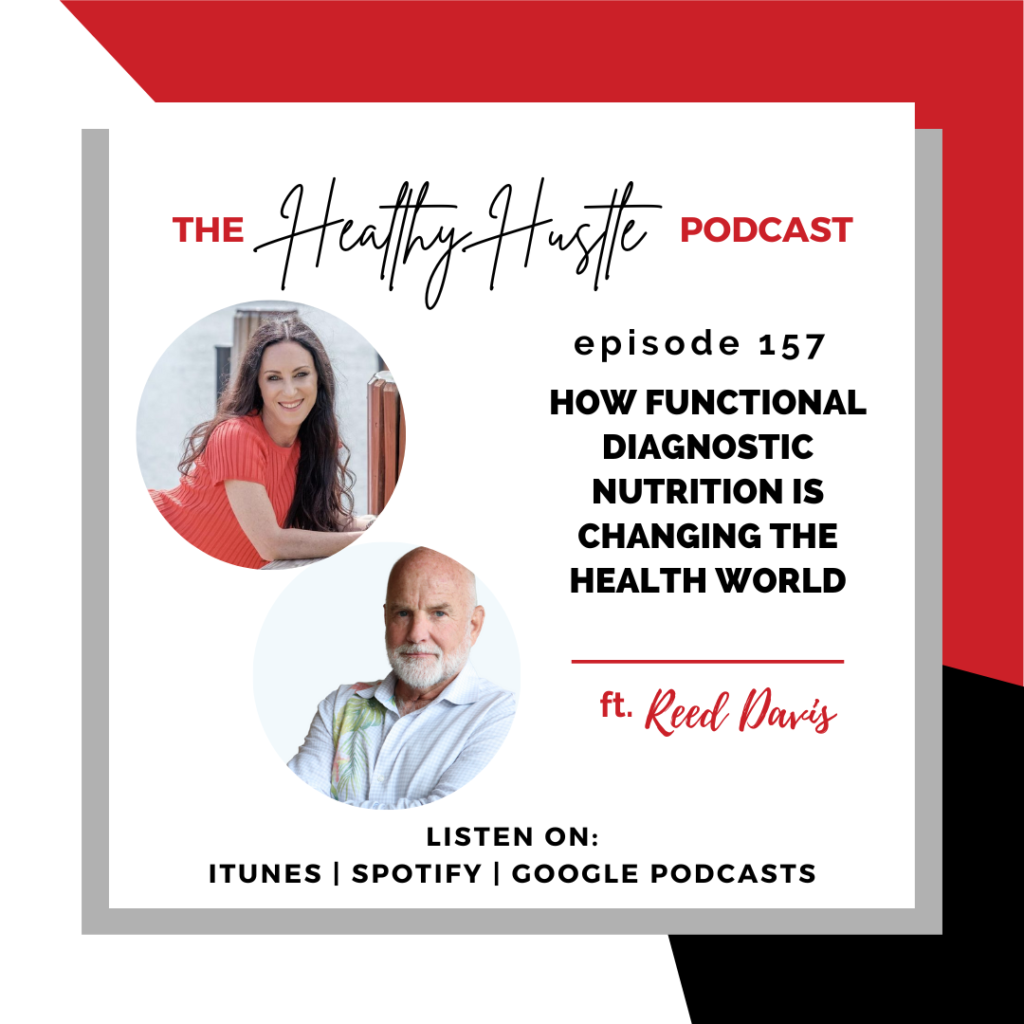
Today I am talking to the fantastic Reed Davis, founder of Functional Diagnostic Nutrition (FDN) and a man on a mission to help people take control of their health. Reed is telling us all about what FDN is, how it got started, and why it’s pumping out these amazing coaches that are prepped and ready to take on the world of health.
Connect with Reed:
Website: www.fdntraining.com/
Free Guide: The Dress For Health Success Guidebook: www.fdntraining.com/healthyhustle
Rachel: I’m extremely excited to have my good friend Reed Davis here. What we are going to talk about is why FDN –the school that I love and suggest to everyone– is great for your practice. I’ve seen practitioners come out of this school and they are prepped and ready to take on this world. I want to deep dive with Reed today talking about what functional medicine is, and why FDN is pumping out these amazing coaches. So Reed, can you introduce yourself and give everyone a little backstory on who you are?
A Mission To Help People Take Control Of Their Own Health
Reed: Thanks very much. So I’m Reed Davis, and I am an entrepreneur. But it didn’t start out that way. I was in environmental law and conservation, saving the planet. But back in the turn of the century, roughly, I started wondering more about people and including me, and what could I do to make sure I never got unhealthy.
I’d really never been to the doctor except for injuries, sports, mostly motorcycles and things, and some dental work. So I didn’t know the cycle of trial and error that people were going through going for a problem and being told they’re normal, or nothing’s really wrong with you, here’s some chill pills, things that.
So I got into the health space, just wanting to help people focusing on the science mostly. And at the clinic where I went to work, almost everybody coming in the door said they were stuck in that cycle of trial and error. They’ve been to 6, 8, 9, 10 different practitioners and weren’t better yet.
So I was riding my motorcycle one day, and I just thought about the people back at the office. And I thought it’s a rip off. Why are people turning their health over to people who don’t care and don’t have any answers? Why are you put in someone else’s hands in the first place? We need to be in control of our own health. So that became my theme. And I made up my mind in there over two decades ago, that I would be the last person they needed to see to get healthy.
Now that was silly at the time, but that never stopped me before. I went back and over 10 years in the clinic and this is my background. I read 1000s of labs and 1000s of people, I got certificates in all kinds of things, personal training, massage and nutrition and lots of other stuff. But it was running the labs and the experience. It gave me working face to face with people who, again, were struggling. And was always looking for what’s the real causal factors, and then sorting that out. And then what could they do about it themselves again, trying to put control back in their hands.
So what were the habits, things they needed? Most people live with poor health and chronic, degenerative downward spiraling conditions. Most people lived themselves into it, but they can live themselves out of it for the most part.
What Is FDN & Why Is It Important?
Rachel: How did this philosophy that you have carried over to FDN into it? Actually, why don’t you tell everyone what FDN is?
Reed: Well, it stands for Functional Diagnostic Nutrition. That’s just the name I had to call it when I had to call it something. I was just a nutritionist who ran labs, a personal trainer and body worker running a clinic, it wasn’t my clinic, it was doctors and chiropractic acupuncture. So I was working there, but pretty much everyone looked to me to triage and I was doing this nutrition with labs. Labs guided everything, their entire lifestyle 10s of 1000s of lives.
One day, someone told me you need to be teaching. Go out and teach other practitioners, you’ll help so many more people than just in your office. I understood, and I said okay, and then I had to come up with a name for it, it was really whimsical, but it was functionalized and it was functional. In 10 years, I had seen medicine go from just alternative and quackery to complementary to integrative and functional medicine was just appearing at that time.
So I said well, it’s very functional, but I can’t call it medicine because I’m not a doctor. But we are using lab work, so it’s diagnostic in nature. It’s not diagnosing medically but it’s diagnostic in nature. And then Functional Diagnostic in nature nutrition because I’m a nutritionist and it’s very nurturing .It’s about nurturing everything. So FDN is Functional Diagnostic Nutrition. So that’s what we call it. It’s stuck.
I’ve got some places I’d like to see it go, evolution-wise, but right now, it’s the only program of its kind that really goes into all the science, the anatomy, physiology, the biochemistry of the labs, and then all the same for the protocols, all drug-free, natural behavior protocols, including diet, and rest and exercise and stress reduction and supplementation
Rachel: I know that you have a free gift for the listeners. Is that what makes up the free gift?
Reed: Yeah, well, that’s a guide book called The Dress For Health Success Guide Book. And so Dr. Ess stands for diet, rest, exercise, stress reduction, supplementation. So there’s a lot of plans that sound the same. But it’s so individualized by the labs. And so we just call it dress for health success.
What Health Coaches Learn Inside FDN
Rachel: What was your vision for this coach, who would come out of FDN?
Reed: Well, I just wanted to teach them. Here’s what I’ve done in the office, it has been very, very successful. So in the office, all the reason I developed FDN was because I just wanted to be the best office in Southern California. I just wanted to make sure everyone walking in the door got well, or at least made significant improvements. Some of them weren’t so bad and some were complete train wrecks. But I saw miracle after miracle. I could tell you stories of people who just had these turnarounds.
Again, I was encouraged by others to teach. So the vision originally was helping as many people as you can to get well and stay well naturally, to educate them. Then I just started deputizing other people to do the same thing. So now the mission is to deputize as many people as possible to educate as many people as possible on their individual practices. For the most part, they are self made entrepreneurs as well.
The Definition Of Functional Medicine
Rachel: I love that. Tell me what is your definition of functional medicine?
Reed: Well, its intent is to find the underlying causes and conditions upstream from the symptoms. So symptoms aren’t the problem. They’re the result of the problem, which is dysfunction and disease processes. The problem I have with functional medicine is that it’s still bound by the boards of the American Medical Association and the education from drug companies and by insurance companies, the pay model sucks, and so it hasn’t gone far enough yet. They’re still diagnosing and treating specific diseases they’re still specializing in, whether it’s gastroenterology or neurology, or endocrinology, you name it. So there’s been interest because they’re bound to by their licensure. So doctors aren’t ready to give up their licenses yet, they paid way too much money for them. A lot of them have very successful practice models, even though it’s very limiting to the person that comes to them.
What do you mean, you’ve been to eight doctors already? And you’re not better yet. That just blew me away. Or, what do you mean, your doctor said, nothing’s wrong with you and you’re overweight and you’re tired and fatigued, and you can’t think straight and your hormones are out of balance and your digestion doesn’t work and your detox isn’t working your skin’s bad. What do you mean, your doctor says you’re normal?
So now functional medicine has taken a step a little bit out of the box in terms of how far upstream they’re willing to go. But it’s controlled by their licensure, their boards there, and by insurance company, which won’t pay for most of the stuff that we do. So we’re completely out of the box. It’s actually a different sandbox.
The Pillars of FDN
Rachel: That’s what it sounds like. What are the pillars of FDN?
Reed: Well, the two main pillars would be one to run some labs. Lab work is a pillar, if you will. It’s what’s in our toolbox. We don’t hesitate to say, why guess? Why not test?
The pillars of what I look for, the what I call the constellation of healing factors or the constellation of healing opportunities. The immune system, hormones, digestion, detoxification, we test these things, energy production and the nervous system. So that’s another acronym. And I love my acronyms. So it makes it easy to remember, we look into hidden this ATDDEN, dysfunctions and stressors, upstream hormones, immune digestion, detoxification, energy production and nervous system.We measure all this stuff.
And then rather than pick out one thing, physicians run tests, but they usually use the sounds method. Well, it sounds thyroid, test the thyroid, if then your problem is thyroid, here’s the medication that will get at the root, some the root reason that the thyroid is off. Ask your doctor, why isn’t my thyroid working? They say it’s idiopathic, they don’t know. And they don’t look. For the most part.
Now, again, functional medicine is getting better. They do understand stress and adaptation and balance and resiliency and these things. But again, they’re bound to diagnose and treat because that’s how they get paid. You can’t send in a build insurance company if there’s no dx and CPT code on it. It’s just a different model. That doesn’t work. If that’s the only sandbox or playground you have to go to turn to get well, you’re in the wrong place. Your ladder is up against the wrong wall.
My mentor Stephen Covey used to say you’re not going to get there. So you got to get into self care and self directed, gather the intelligence, richer the who owns the data on a lab test? Your the patient, it’s your data, get it, understand it, have somebody explain what it means to you.
We’ve got a core principle of FDN to have that practitioner going over that test to really empower the person. We’re not diagnosing. We just use the tests to explain why you feel crappy. Whether it’s your digestive problems, your skin problems, your energy, or overweight, whatever it is, the labs can help explain why and people are thankful. They’re so glad, why didn’t anyone else run these tests?
I just explained why insurance doesn’t cover a lot of it. And why there’s no deep diagnosis for some of these things. Food sensitivities. That’s not a diagnosis, that just means that food causes you problems. Right? Try not to eat it for a while. But I’ve seen absolute miracles occur just from that one test. It’s remarkable when you get the data. Gather intelligence, and then you just get on the pathway guided by that intelligence. I’m calling it Intel Apathy. It’s an intelligent pathway and it’s unique to each individual, which is another pillar of our beliefs, or tenants.
Why FDN Graduates Are The Key To Future Health
Rachel: Tell me why you think FDN graduates are really the key to the future of health?
Reed: Well, there’s loads out there. Health coaching is a magnificent exploding field. But it doesn’t go far enough, you need to be a practitioner, also. As health coach practitioners, we get more into people’s minds and emotions with guided interviewing, and active listening and in what motivates people and get their commitment up to higher levels than normal so that they’re actually going to follow the behavior.
But you also have to know what’s wrong with them. How can they fix that? How can they stay in control? So we’re more practitioners than health coaches, but most aren’t licensed. So they just call themselves health coaches, but they’re the top of the heap. So we can say hey, look, if you get your college degree, couple certificates and work experience, you might be ready for this on your journey to become an amazing practitioner who actually solves a lot of problems for people when no one else can.
Rachel: Yeah, I think the testing is so integral, such a key component of figuring out because I know that if you don’t test you’re just going in circles. I mean, there are a lot of people that can be fixed per se, or that get to a different place of their healing. Myself who had so many years of asthma and ulcerative colitis, and all these different things that were happening. I didn’t just change food, and I had that drastic change.
Reed: Absolutely. So I’ll tell you, when I’ve had so many young people, mostly women, coming into the clinic 20 years ago, I think they care more about their health, I think they’re more likely to pay attention to their booboo, so to speak. Men, we care more about our cars and motorcycles running well. And we’re happy. So with women coming in the office, when they got success, they would refer me to their husbands or bring their kids in for things that they just didn’t even know where to begin.
One of the most common stories they tell us about a lady that came in, she was talking about her eighth visit for Chiropractic and Massage and I could tell she was really feeling badly. She was 40 pounds overweight and frustrated and sick and tired of it. What are we going to do about that? Oh, there’s nothing I could do. She got angry. She’s like, I just went to the doctor for a checkup. I’m on this medication for the hives and I’ve been on it for two years and it makes me fat. Then I went to the doctor and I told him how frustrated I was with the weight. I had hives and I was fat and it’s really depressing. The doctors said, we’ll be happy to write your prescription for antidepressants. So she’s staring at the ground and I said, Well, why didn’t you ever find out why you get the hives?” And her head snapped around so hard. It was unbelievable. What do you mean? No one had ever offered.
So this is in line with your question more or less that people just don’t know that there’s data, it belongs to them in either fight. Get it. And that’s what FDN practitioners do. I think that’s what puts us out in front a little bit at least. We don’t guarantee results, Rachel, because we’re not in control of the results. But reasonable expectations. Every time everyone gets better 100% of the time, if you find out what’s really wrong, what’s out of balance, what’s deficient, what’s been stretched to its limits and whatever it might be. What are the general principles that healing this would apply? The body genetically requires certain amounts of nutrition. I could go on and on about all that.
But that story I just told you is so common. And another lady real quick. She called me up. I was referred by so and so I hope you can help me. What’s your problem? She goes, it’s a migraine. So I’ve been in a dark room with a pillow over my head five days a week. I just can’t get up. I said, we’ll run a couple of labs on food sensitivities and some environmental pollutant panels and things. Sure enough, I found out she was exposed not just with food, but with her even down to outgassing of furniture and things that epigenetic influences.
I had no clue exactly what was going to happen. You can’t predict much. But looking backwards, this is so common, you eliminate those things, the problem goes away. She was able to go within just a couple of weeks for days and weeks with no migraines at all. Just what she called normal headaches. Well, we know those aren’t normal. But that was such an improvement for her she could go get a job and start living a life.
One more really quick, I had was a little football coach for years and years. I love kids and working with kids. I get so many kids’ stories. A mom comes up to me at practice and goes, “Hey, Coach, would it be okay if Bobby misses practice, but he could still play on Saturday?”
I said, no, that’s not how it works. You come to practice, you play with the other kids, you learn the new plays that we’re putting in for this week. And then you can play on Saturday. It’s not fair. Why can’t he come?
Well, he’s got asthma and he’s embarrassed to bring his inhaler with him. The other kids laugh. By the way, this kid was a good athlete. I’d seen him in training and I really wanted him there. So I said, Hey, get him in the office. We’ll get you some tests and just cut to the chase. Within two to three weeks, no more asthma attacks. He threw the inhaler away, which, by the way, are horrible for your bones. I mean, it’s drugs for kids. They are no good in my book.
He was 12 at the time, he went on to be the super high school athlete in college and stuff that changed his life. His parents still, if I see them in town, are coming up saying, hey, I really want to thank you. That was 20 years ago, they’re still thanking me for changing their kid’s life. So these are the joys of getting to the root cause and helping people fix things. Again, we’ve been doing it long enough so that there’s some predictability there.
Core Tests Used On FDN Patients
Rachel: There are lots of tests out there. What are your favorites? Do you have a bundle of tests that you start your core testing?
Reed: Yeah, I have to say that over the years, I ran 1000s of labs, and some people I would run labs that I didn’t even know what I was doing. So I had great mentorship. But I also made my own observations, Rachel. I ran more labs than any five practitioners put together for almost a decade. I recognize patterns. I’m a good organizer from the time I was a kid. So I organized the areas of dysfunction that were most common in hormone, immune, digestive detoxification, energy production, and so on.
We use some saliva test, a urine test, a stool test, and a blood test, and another blood test for food sensitivity. So five Labs is what we ask everyone to run. It’s a small investment compared to being sick. Don’t you think?
Rachel: Yeah, better an expensive choice than staying sick. When I was chronically sick, you become a slave to the food that you’re eating, and then you just feel crap all the time, you start feeling a depression. And that’s a difficult thing that so many people deal with when they’re dealing with these chronic health issues, let alone being a child. And you as a parent are dealing with all this anxiety and sadness because your child isn’t thriving.
Reed: We teach FDNs to be health entrepreneurs and most of them work for themselves. So they’re a fee for service. It’s a retainer, you retain me for 90 days. We’re gonna run some labs, we’re gonna go over the test results, and they will explain what’s going on with you. And then we’ll give you some things that will improve all of those functions. All natural, drug free, not spending a lot of money on supplements and stuff. But not only that, we’ll coach you for 90 days.
Most doctors say, come back in 90 days, take this and we’ll see. We’ll test again and see how you’re doing. We’re saying no, there’s going to be some behavior requirements, we’re going to work with you for that 90 days. So again, it’s a fee for service.
But if your total investment –depending on what’s going on– won’t be more than a week’s vacation with your family. There might be a weekend vacation with your family, it’s more than a few nights out for dinner. It’s not buying a new car, either. We’re not asking for more than what’s reasonable when you’re getting your health back.
I’ve never been in a lawyer’s office that didn’t say write me a check for five grand and I’ll help or we’ll look into it. We’ll look into it. It’s that fee for service. But what we’re delivering is life-changing. And not just for one person. We teach them so much they can pass it on to their family.
Rachel: I love that you guys teach so much about habits too, because it’s these habits that are actually going to change what we do on a daily basis. And then you have the lab testing.
Reed: Yeah, so the D or ESS is the protocol. There’s the testing and there’s the protocol. And it’s completely natural. It’s really nature at work. Remember, it’s Functional Diagnostic Nutrition, nature, nurturing, whatever word you want to use. And it’s so helpful. It could even include anything of nurture. If our job is to identify and overcome obstacles to healing, we need a lot of creativity.
So we identify those obstacles to healing first, and creatively overcome them mostly with behavior. What if those obstacles to get healing are in a person’s mind and emotions? Well, you have to be creative there too. Use the code –that’s where the coaching comes in –that you’re going to be getting to why this is so important. How life-changing is it going to be when you overcome this and raise your commitment level? We actually follow through. It’s not going to be some of the things you bought on the internet you’re going to do for a week and then stop because it’s too much work.
Rachel: No, it’s a process. I love what you say right there good things come to those who hustle.
Reed: And it’s true. It’s your health to write it.
How You Can Take Care Of Your Health
Rachel: Well, that’s why we’re called the Healthy hustle. Because you’ve got to take care of your health. You’ve got to do the things in this life to be able to give you that energy that you want. I know you are a lover of energy so you can garden, so they can go on your bike. Tell me what are some of the things that you do in your life to take care of your health?
Reed: Man, it sounds corny as hell, but early to bed early to rise, work hell and advertise. So you thought it was gonna end something? This morning, I got up at three o’clock. It was too early and I might pay for it later with a little nap. But I do get up early, but I go to bed early.
We’re diurnal and nocturnal animals. Our circadian rhythm is built around daytime, we measure the hormones involved in stuff. So get up early and get a lot of stuff done. I’m a GSD guy. Get Stuff Done. That’s one of my mottos. My wife always says, I know you’re the GSD guy. He can’t wait, you’re gonna go do it right now. Clean the car, write a blog. You gotta get shit done, every day.
But when you start early, it’s just approaching noon my time now in California, and this is my last appointment. So I can go get on my tractor. I love landscaping property, I can do other things that are important to me and enlargements around work, but it said other work that you do.
Rachel: So tell me if there was one thing that you could buy these days to up your health, what would it be? Or do you feel you’ve really mastered that? Do you feel there’s any toys for biohacking and stuff? What’s your favorite thing these days?
Reed: Well, I have toys, I love my toys. I have a motorcycle collection and side by side a couple of those. And a pickup truck and Mercedes Benz and a bunch of stuff. My son has a boat so I don’t have to get one of those.
But on the other side, doing things to maintain my body. So I’m almost 70 on my next birthday. I have a very well used body. So I’ve been really rough. I plan on going down to Cancun and getting some more stem cells. I’ve had stem cells five times. I’ve spent a lot of money on it because I’m learning about my body again, I’ve injured both shoulders. My mid back, my low back, my neck looks like crap, I was told. A chiropractor friend of mine read my MRI report on my neck.
So I’m doing those kinds of things with my money. I’ll take my wife and go on vacation and get some stem cell treatments in Mexico and, and things that. I see that in my future. I got Dr. Tom O’Brien is a good friend of mine. If I used to care who wrote that about my neck, and he’s got this clinic in Switzerland, that you can go and do fun bio hacks with blood and stuff like that. So, anti aging. People ask me when I will retire – not soon.
Rachel: I just love what you’re doing. I know for myself, I was saying to my husband the other day when we were having this retirement talk, I said I just don’t see myself stopping. I would do all those things to take care of myself. So I have my vibrant energy.
Reed: Yes, and you have an abundance of it and it shows. Every time I see you, I feel better. That’s the other thing that we get to do. For the people we want to help set the example. Teach them how to live. Teach a man to fish and you feed him for a lifetime thing so I intend to do that. That’s where my money’s gone.
Rachel: Well, I love that. I know that there’s going to be a bunch of coaches who want to check FDN out. Can you tell me where to find you guys on Instagram or your website?
Reed: It’s really easy. FDN training.com/healthyhustle in your honor, Rachel. We would love for your listeners to go there and get more information. You have some things, you’re doing certificates, or call us whatever. You’ve also got some work experience, you’re out there in life. And your main mission is to help people, and you’re willing to walk the talk. You can make a really good living doing it, because you see other people doing that. You’re entitled to get paid for your profession. Why don’t you just make it a real profession then, and act a professional, charged professional fee? You need the skills to do that. Our course is designed for this, what it’s designed for is to put you in that ballpark, where now you’re cooking with gas.
Rachel: I love that. Trust me in this world where there’s so much toxicity in mind and spirit, and body. I think that we need this coach all the time. We need somebody to look for those hidden reasons why we’re sick. You’re not born to be sick. You’re born to be healthy, that’s your birthright.
Reed: Absolutely, that’s your birthright. We owe it to ourselves. The last thing I’ll just throw in there for those that aren’t so entrepreneurial, but they still want to do good, and they’re still willing to walk the talk and they want to learn more, again, all the skills are there.
Now, we’ve been around since 2008, and we’ve grown this, we’ve deputized 1000s of FDN practitioners, a lot of them just are getting jobs, they just aren’t working in clinic, they just want to help a doctor or a group of people with what they do best run the labs and give them the protocols and coaching. So we’re finding physicians now coming to us labs, supplement companies, saying hey, we want to post a job on your alumni board.
Rachel: I just want you to go on that self healing journey. I think to be able to go, I know that you guys have it set up where you actually take your own tests and go through that process with a coach. Oh,
Reed: Yeah, that’s required. You have to work on yourself. So everyone runs all the labs and gets all the mentoring one on one, because we want you to go model that fits it, show you and then you go model it in the world and you’re charging good money for it. You can make your course tuition back with three clients. But if all you did is get your own health back, that would be worth the price of admission.
Rachel: Isn’t that the truth? That is worth the price of admission. If you haven’t met Reed, please go follow him. He often will do a live or he will do training. Check it out at FDNtraining on Instagram. They have amazing content interviews with alumni, just tons of information even on health, gut health, hormones, genetics. You name it. They’ve covered it.

